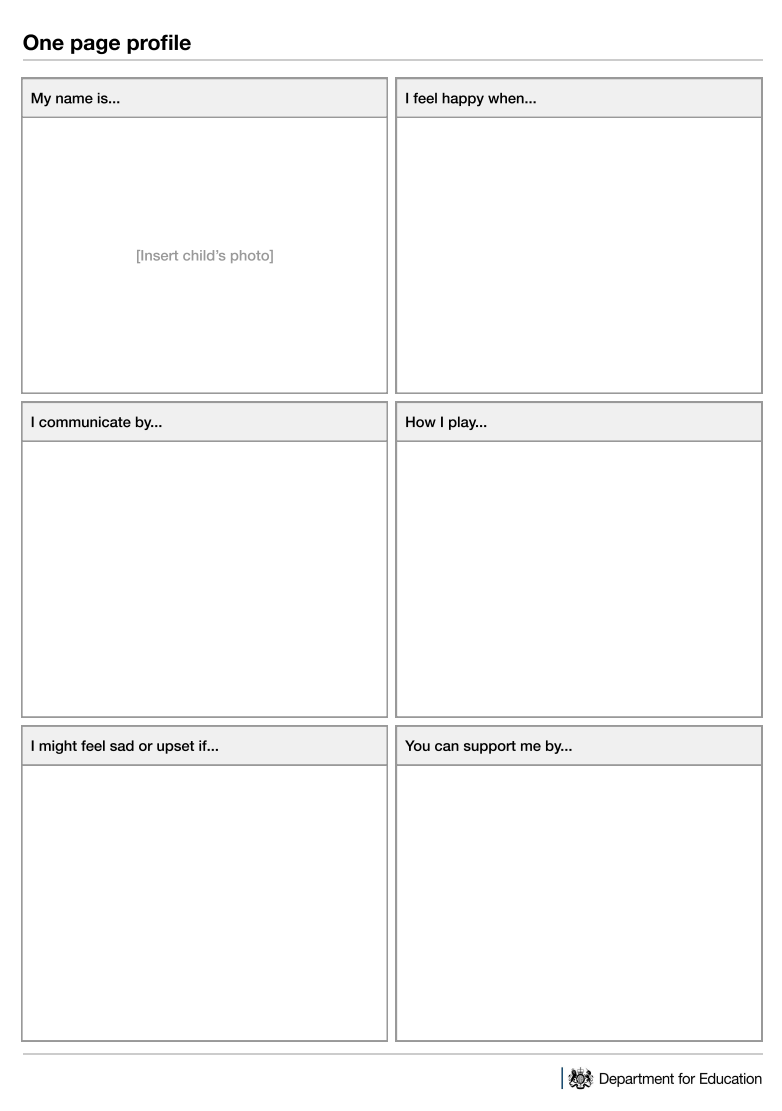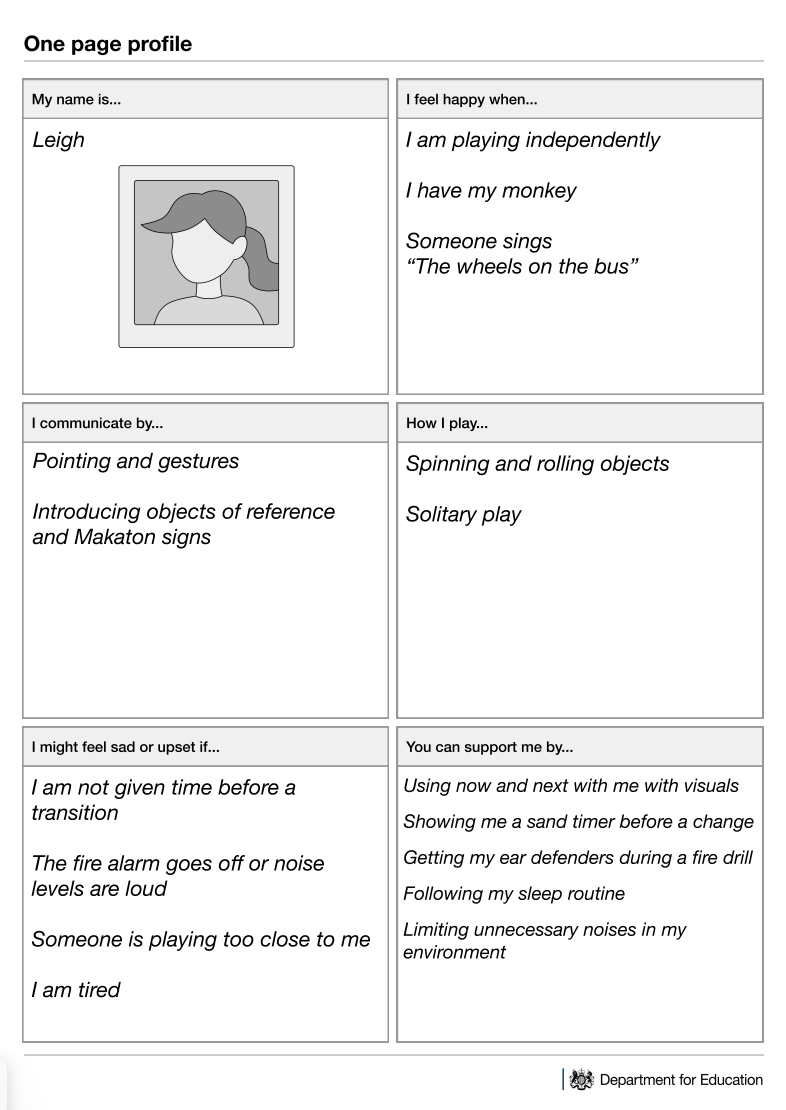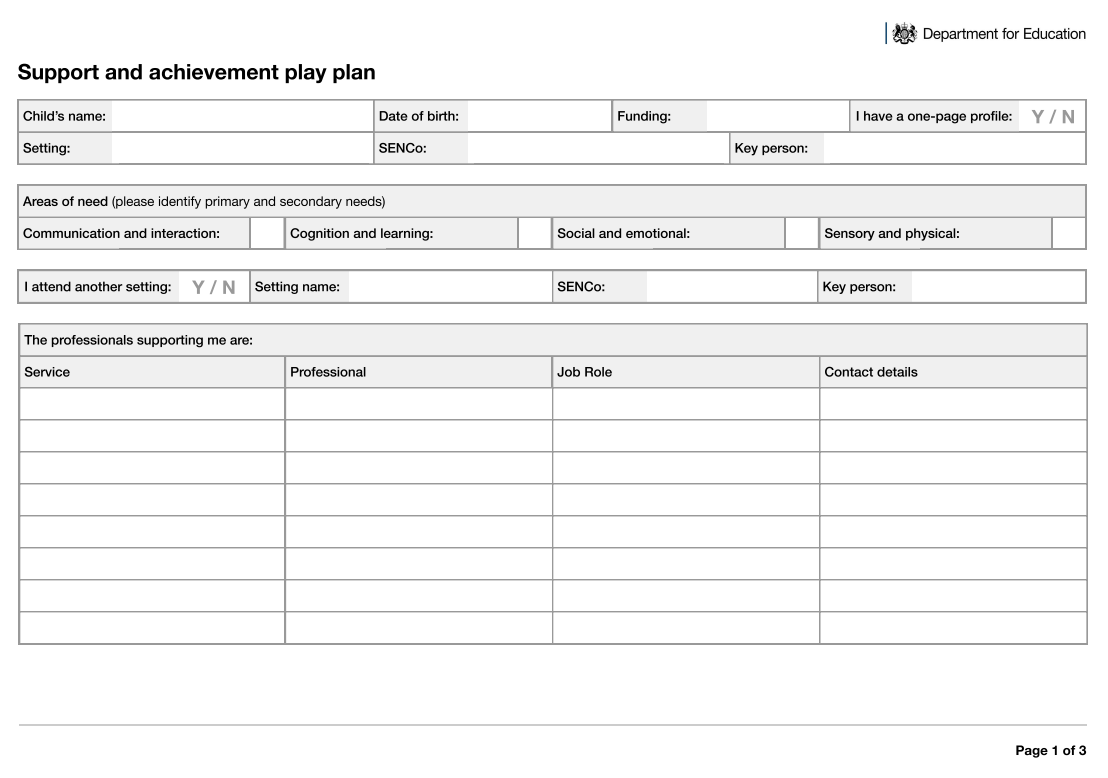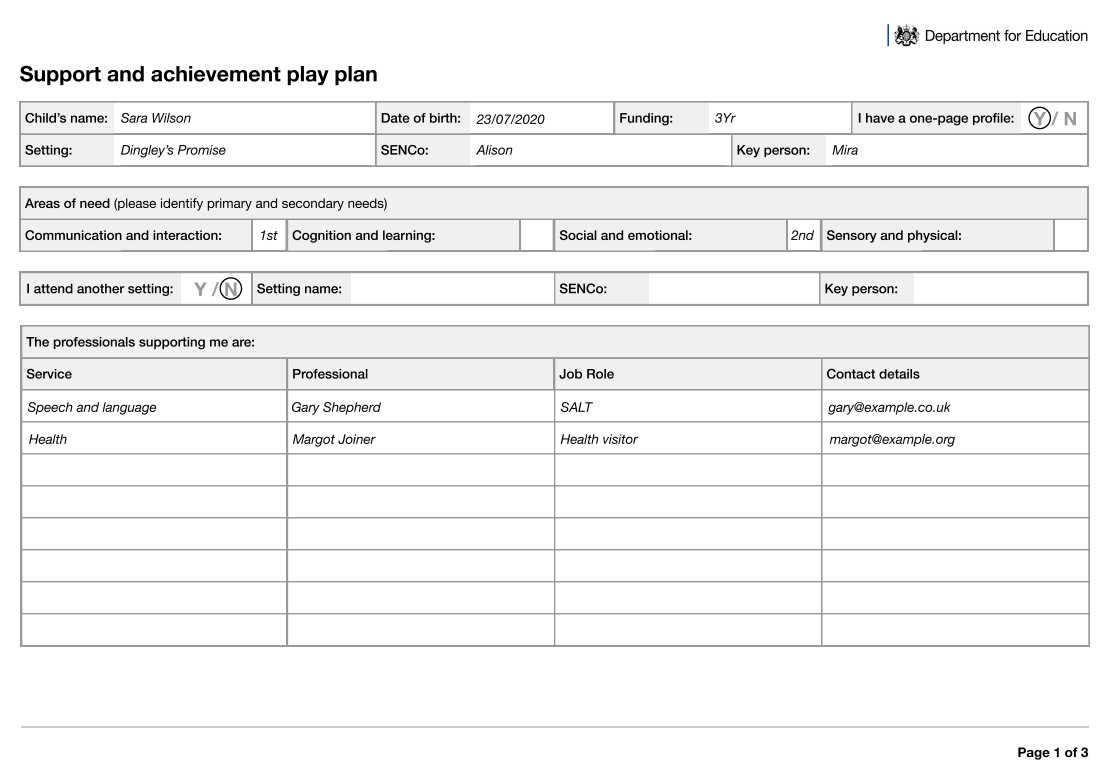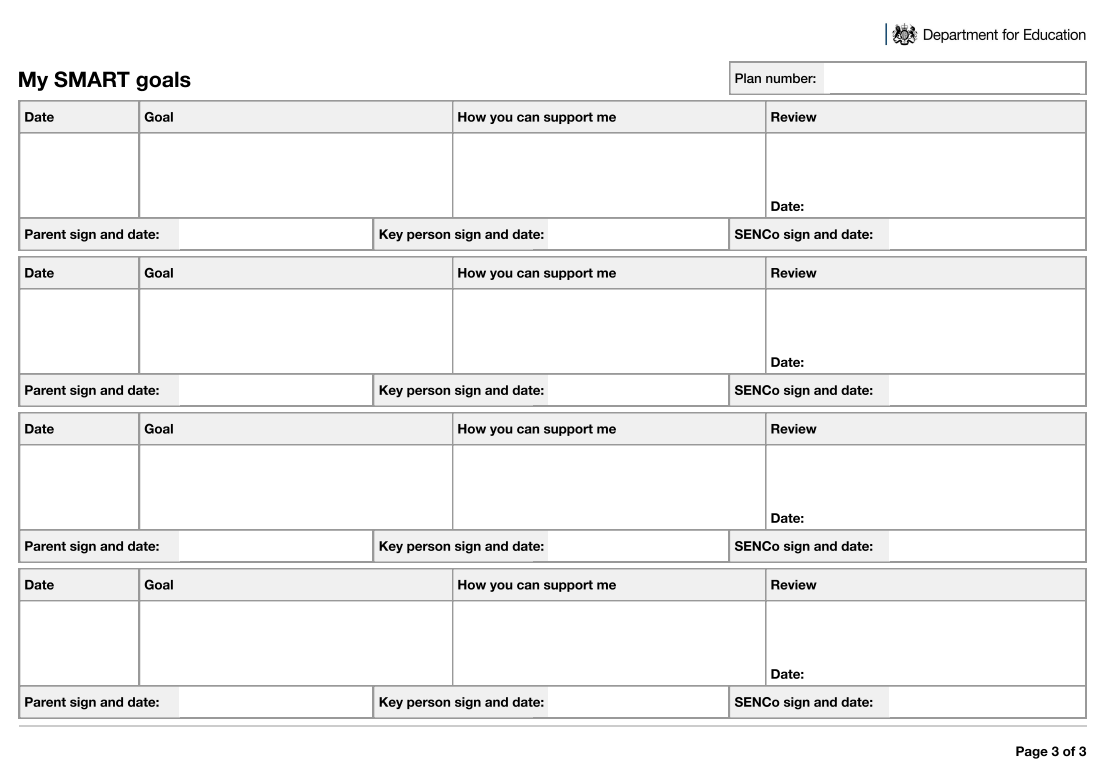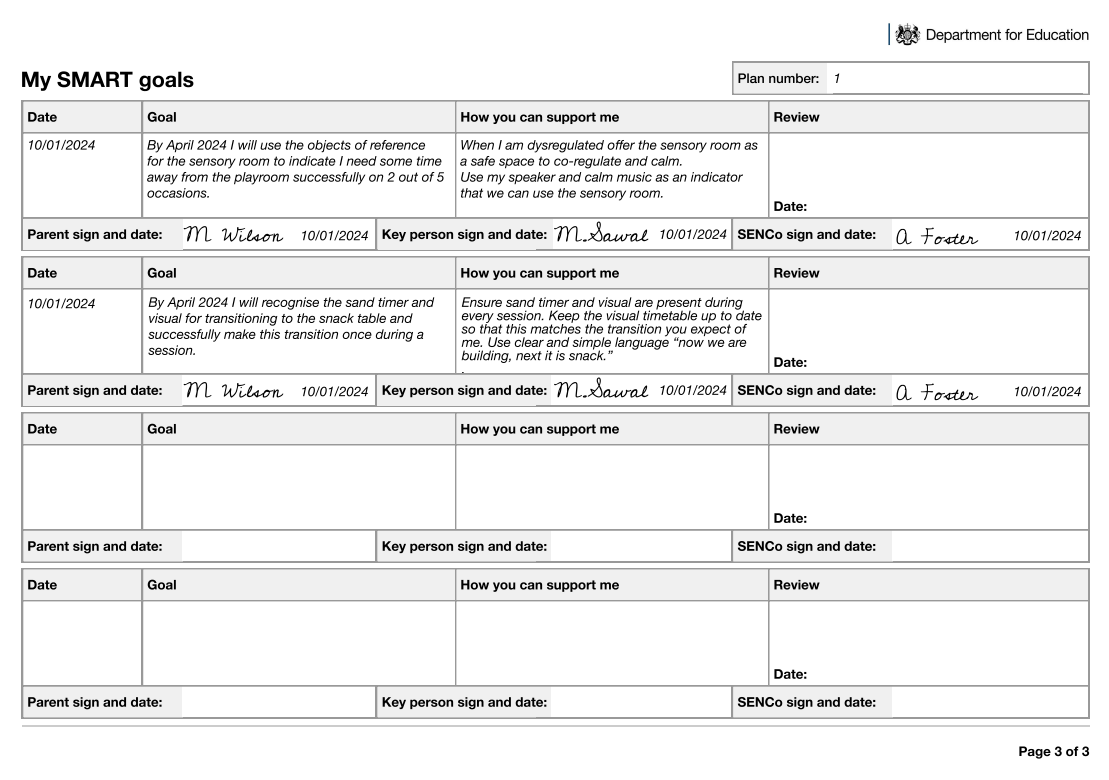Setting targets and long-term goals
Tools to use when setting targets and long-term goals for the children in your care.
Setting targets and long-term goals
Alongside the assessment tools, you can choose to use the below resources in your setting, to capture the voice of the child and set longer term goals for the children with SEND in your care.
One-page profile
A one-page profile creates a clear outline of who the child is as an individual and will enable you and others to consider the child’s strengths, interests and types of play regularly to ensure the support provided is impactful. It is important to reflect on what a child enjoys and doesn’t, as well as any key support that makes the environment and experiences accessible to them throughout the day. In the box titled “how I play”, you can refer to or describe how a child participates in play. You might want to include characteristics of effective learning or types of play, that have been observed by you or the family, whether this is solitary play, playing parallel to peers etc. For more information on types of play, follow the links within the glossary of terms. Some of this information may change over time, so use regular opportunities with parents and or carers to discuss changes in interests, challenges, and communication strategies to ensure you keep a child’s one-page profile up to date.
Support and achievement play plans (SAPPs)
To support a child with SEND it can be beneficial to complete a SAPP. This outlines the long-term goals as agreed between the parents and or carers, key person and where relevant, other professionals such as SENCOs. The SAPP is broken down into small steps for the coming term. These should be updated regularly, particularly if you feel a child is achieving the goals they were working on and no longer benefit from the support in the plan.
My SMART goals
After assessing a child with the assessment tool, you may choose to use the statements to record their short-term goals in a SMART target sheet. For further information on SMART target setting, see the further reading section.
Further reading
- A blog from Pacey on what the graduated approach is and how to use it.
- The stages of play from BBC Tiny Happy People.
- Using the Leuven wellbeing scale in observations to assess children’s mental health and wellbeing more effectively.
- Tips from the National sensory impairment partnership to support anyone working with a pupil with sensory impairment
- Early years child development training Module 7: Effective curriculum and assessment.
- Early years child development training Module 8: Supporting individual differences and needs.

